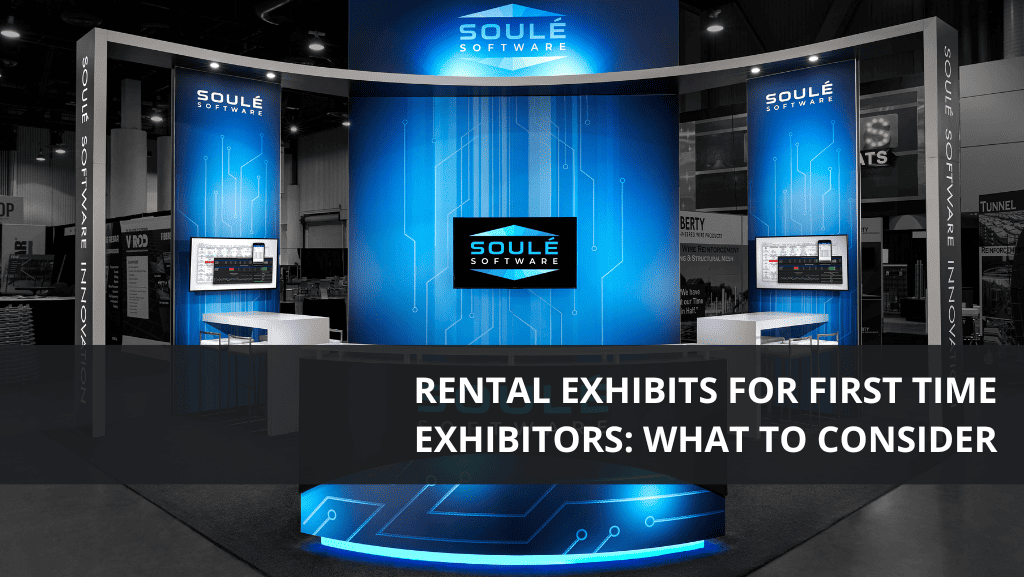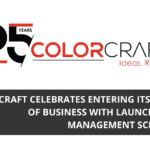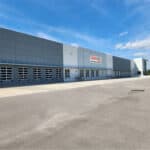Trade shows are where businesses come alive in a vibrant, interactive setting. For first-time exhibitors, renting a trade show exhibit offers a unique opportunity to showcase your brand without the hefty commitment of purchasing a booth. Learn how to effectively navigate the trade show exhibit rental process, ensuring your trade show debut is both impactful and memorable.
Understanding the Basics of Trade Show Rentals
Trade show rentals are a practical solution for businesses looking to participate in trade shows without the long-term commitment and expense of purchasing a booth. These rentals provide temporary, customizable exhibit structures that can be tailored to meet specific event requirements and branding objectives without the cost and hassle of storage and transportation.
Key Benefits of Renting a Trade Show Exhibit
Cost-Effectiveness
One of the most significant advantages of renting is the cost savings. Renting eliminates the need for a large upfront investment in purchasing a booth. It also saves on storage and maintenance costs, making it an economical choice, especially for businesses new to trade shows or those that participate in multiple events with different themes.
Customization and Flexibility
Rental exhibits offer a high degree of customization. Businesses can choose designs that align with their branding and marketing strategy for each specific event. This flexibility allows for a fresh and unique presence at each show, catering to different audiences or showcasing various products or services.
Hassle-Free Experience
Renting a trade show booth often includes comprehensive services like transportation, setup, and dismantling. This turnkey solution means businesses can focus on preparing their staff and presentations without worrying about the logistical challenges of booth management.
Opportunity to Experiment
For first-timers, renting provides an opportunity to experiment with different booth sizes, layouts, and designs without a long-term commitment. This trial approach allows businesses to learn what works best for their brand in a real-world setting before investing in a permanent exhibit.
Scalability
Rental exhibits are scalable to the needs of the business. Whether participating in a small local event or a large international trade show, rental options can be adjusted in size and complexity to suit the scale of participation.
No Long-Term Storage Worries
Owning an exhibit comes with the challenge of storage. Rental booths eliminate this concern, as the rental company takes care of the exhibit after the event, freeing up valuable space and resources for the business.
Access to Latest Trends and Technologies
Rental companies typically offer the latest designs and incorporate cutting-edge technologies into their exhibits. Renters benefit from these modern, innovative elements, which can significantly enhance the attractiveness and engagement of their booth.
Setting Your Trade Show Goals and Budget
Start by defining what you want to achieve: brand awareness, lead generation, or direct sales? Once your goals are clear, set a trade show budget that includes booth rental, design, travel, accommodation, and other related costs. Remember, a well-planned budget is key to a successful trade show experience.
Choosing the Right Trade Show and Space
Select a trade show that aligns with your industry and target audience. Research the event’s attendee demographics and past exhibitor feedback. Within the trade show, choose a booth space that suits your budget and visibility needs, considering foot traffic patterns and proximity to key attractions.
Selecting the Perfect Exhibit Rental
When choosing a rental company, look for reputation, design options, and customer service. Your chosen exhibit should align with your brand image and trade show objectives. Discuss customization options to ensure your booth stands out and effectively conveys your brand message. Check out our rental exhibit portfolio for inspiration!
Designing Your Exhibit for Maximum Impact
Design your booth to be inviting and engaging. Use clear, compelling graphics and branding. Interactive elements like touchscreens or product demos can enhance visitor engagement. Keep your efforts focused where applicable. Consider selecting a few key products/services that are likely to most resonate with the attendees rather than attempting to showcase your entire catalog. Above all, your booth should create a lasting impression and communicate your brand story effectively.
Preparing for the Trade Show
Preparation is crucial. Train your staff to interact with attendees and handle queries. Prepare marketing materials like brochures and business cards. Also, conduct pre-show marketing through social media, email newsletters, and other marketing channels to generate interest in your booth before the show doors even open.
Making the Most of Your Trade Show Experience
At the event, network actively and engage visitors with a friendly, approachable demeanor. Be proactive in starting conversations and use this opportunity to learn from attendees and other exhibitors. Collect contact information and feedback whenever possible.
Post-Trade Show Follow-Up
Once the show is over, you unfortunately cannot pat yourself on the back and wait for the phone to ring. Follow up promptly with the leads you’ve gathered. Personalized emails or phone calls can help convert these leads into customers. Also, evaluate your team’s trade show performance to identify what worked well and what can be improved for future events. Check out our post show marketing guide to maximize ROI!
Participating in a trade show can be a game-changer for your business, especially when you’re equipped with the right strategies. With careful planning and execution, renting a trade show exhibit can open doors to new opportunities, connections, and growth for your brand.
Ready to make an impact at your next trade show? Contact us for expert guidance and support in choosing and designing the perfect rental exhibit for your business needs.






